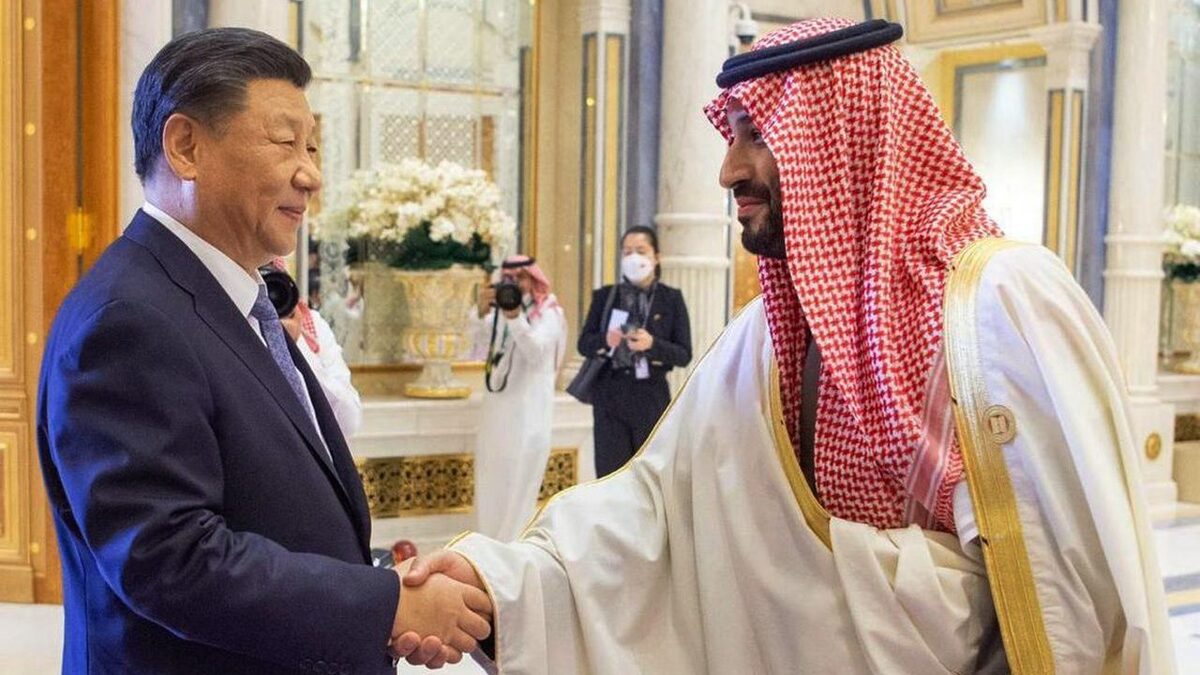Of course, China is one of the countries that has traditional and long-standing relations with the Persian Gulf region, and within the last 5 decades, various variables and drivers have made the Persian Gulf region attractive to China, some of the most important of which are mentioned here.
Safe access to energy sources
This country, which has lost energy self-sufficiency since the early 1990s and needs to import oil, has tried to approach the big energy players in the Persian Gulf region, such as Saudi Arabia, Qatar, the UAE, and Iran, in order to provide its needs safely and continuously.
Since the countries that have energy resources in the Persian Gulf are divided into two spectrums, US allies and cooperators (Arab countries) and US opponents (Islamic Republic of Iran), China has taken careful steps to create a balance between the competitors in the region, and in this regard, it emphasizes the expansion of economic relations with all actors in the region and the creation of comprehensive strategic partnerships with both sides.
Free use of security available in the Persian Gulf
From a military-security point of view, although China is trying to establish its position in the region as a key and necessary player, it is not trying to create a security environment and counter American influence in this region; Rather, on the contrary, the efforts of Western countries, especially the United States, to ensure order and security in this region, consider it an opportunity to use the existing security in the region to maintain and promote its economic interests without spending any money.
Another point is that Beijing has always tried to protect itself from entering into the conflicts of this region and assuming long-term obligations. In this regard, China, in the shadow of the macro-policy of soft balance with the United States, has adopted the approach of interacting with this country in the Persian Gulf.
Of course, after the recent change in the US government’s approach to the West Asian region and the country’s focus on Russia and China in its 2021 national security strategy, China’s security policy towards the Persian Gulf has also changed to some extent.
Expanding influence through the economy
The relations between China and the Persian Gulf countries entered a new era as of 2004 with the formation of the China-Arab Cooperation Forum (CASCF). The second turning point in the relations between China and the Persian Gulf Cooperation Council is the movement of the two sides towards signing a free trade agreement during the last decade. Based on this, one of China’s important policies in the Persian Gulf region is to strengthen its influence in the region by establishing economic relations with the main regional actors and creating a sense of dependence in them. This country has gained the position of the main investor in the Persian Gulf by surpassing the US and the West.
Developing relationships with domineering goals
The study of China’s foreign policy approaches, especially in the last decade, shows that this country is trying to build a new economic order at the international level, and to achieve this goal, it has strengthened its relations with different regions and countries. One of China’s specific measures to realize this goal should be found in the initiative to create a new silk road.
Therefore, the geopolitical position of the Arab countries of the Persian Gulf, their possession of large capitals, their ambitious plans for development, and especially their eagerness and welcome to cooperate with China in order to reduce their dependence on the US, have prompted Beijing to look at the Persian Gulf region as a lucrative market for multiple investments in infrastructure, especially ports and railways, as well as in Chinese technologies such as artificial intelligence and 5G.
Pulling towards risk-free and lower-cost actors
Prioritizing economic issues for China has caused this country to not have a special bias and obligation to communicate with one or more specific countries and not to communicate with another group, and to enter into cooperation with any actor who can better secure the interests of this country. In the meantime, the political characteristics of the Persian Gulf region and the two sides existing among the countries of this region have led China to avoid entering into political disputes and balance between competitors to ensure maximum benefits.
It was in line with this balancing policy that we saw China increasing its cooperation with Iran in recent years and trying to deepen bilateral relations through a 25-year cooperation agreement. Despite the increasing US sanctions, this country buys a large part of Iran’s oil, partially supports Iran’s positions in nuclear negotiations, and supports Iran’s membership in regional organizations such as the Shanghai Cooperation Organization. On the other hand, this country has also increased economic cooperation with Iran’s competitors in the Persian Gulf.
Nevertheless, the recent visit of the Chinese president to Saudi Arabia and the issuance of a joint statement against Iran is a new sign that China has abandoned the traditional policy of balance in the Persian Gulf and is seeking to define less tense and risk-free relations in the region.
In addition, the strategic energy product provided by Iran can also be obtained by Arab countries; As a result, at the current stage, from China’s point of view, the bottom of the balance scale has been disturbed, and the side of the Arab countries has been recognized as heavier and more beneficial.
China’s adoption of this approach can be seen as a serious threat and damage to Iran’s weight and credibility in the Persian Gulf in the short term, and if measures are not taken for it, in the long term it can turn China into another US.










0 Comments